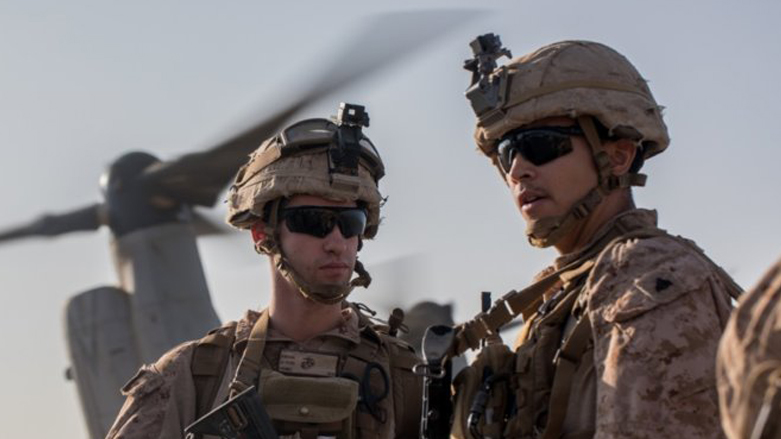Trump claims victory over ISIS, but doubts persist

WASHINGTON DC (Kurdistan 24) – US President Donald Trump came close on Wednesday to claiming victory over the Islamic State as he addressed the conclusion of a Ministerial conference of the Defeat-ISIS coalition, held at the State Department.
“It should be formally announced sometime, probably next week,” Trump told the assembled delegates, that we “have 100 percent of the caliphate.”
Trump noted that in January 2017, when he became president, the Islamic State controlled “a vast amount of territory in Syria and Iraq.” But over the two years since, “We have retaken more than 20,000 square miles of land,” he said.
“As I noted in my State of the Union address yesterday,” Trump continued, “the United States military, our Coalition partners, and the Syrian Democratic Forces (SDF) have liberated virtually all of the territory previously held by ISIS in Syria and Iraq.”
Ilham Ahmed, co-president of the Syrian Democratic Council (SDC), the SDF’s political wing, has been visiting Washington for nearly two weeks and was in the audience to hear Trump speak on Tuesday, invited to the event by Rep. Tulsi Gabbard (D, Hawaii.)
As Aliza Marcus, an internationally recognized expert on the Kurds, tweeted on Wednesday following Trump’s speech to the Defeat-ISIS conference, “No question that [her] trip was productive.” Amberin Zaman, a senior correspondent for Al-Monitor, agreed, adding, “She is expected to get a high level” meeting at the National Security Council, as well as other meetings at the State Department and Pentagon.
The speech of Secretary of State Mike Pompeo that opened the Defeat-ISIS conference was not so different in substance from Trump’s speech ending the conference, but it was different in tone. Pompeo emphasized not so much what had been achieved in the fight against the terrorist organization, but the tasks ahead.
“ISIS remains a menace, one that it is our generation’s responsibility to stop,” Pompeo affirmed. “We all know that there is more work ahead of us,” he continued. “The recent suicide bombing in Manbij shows that ISIS remains a dangerous threat in territory it does not control.”
Pompeo also said that the “drawdown of troops” in Syria is “essentially a tactical change—it is not a change in mission.”
“The drawdown will be well-coordinated, and our policy priorities in Syria have remained unchanged,” he continued.
Pompeo listed not only the enduring defeat of the Islamic State as a policy priority in Syria but a “political solution in line with UN Security Council Resolution 2254” and “the removal of all Iranian-led forces” from the country.
He also warned that “ISIS retains a real presence” in Iraq and “is trying to mount a clandestine insurgency,” even while he explained that stabilization funding for the country faces “a roughly $350 million shortfall” and called for additional donations.
Bayan Abdul Rahman, head of the Kurdistan Regional Government mission in Washington, was present. She spoke with Kurdistan 24 and explained that she was attending the conference, “representing the Kurdistan Regional Government as part of the Iraqi delegation.”
She thought the conference dealt with “the right issues,” as “we need to focus on the next stage.” That includes confronting the Islamic State’s ideology, as well as ensuring that “sleeper cells” are uncovered and “clandestine operations” thwarted.
Other important issues, she suggested, include the return of Internally Displaced Persons to their homes, as well as “justice and accountability.”
Nadia Murad addressed the Ministers during their working lunch, which was dedicated to“Accountability and Protection of Minorities.”
A Yezidi, Murad was kidnapped in 2014 as the Islamic State attacked Sinjar, wantonly slaughtering Yezidi men, including six of her brothers and step-brothers, and kidnapping women. She was held as a sex slave in Mosul before she succeeded in escaping.
Murad became an eloquent and passionate advocate on behalf of those women who are abused in conflict situations. Last year, she became a co-winner of the Nobel Peace Prize for her efforts, becoming the first Yezidi and first Iraqi to receive the prestigious award.
Editing by Nadia Riva
